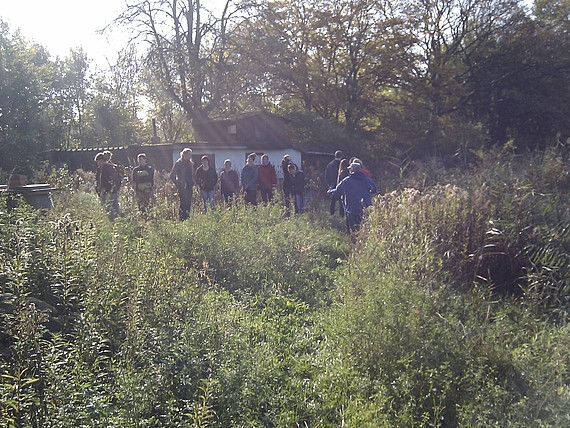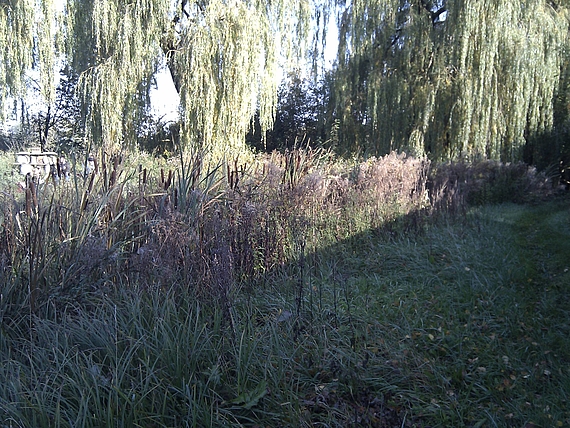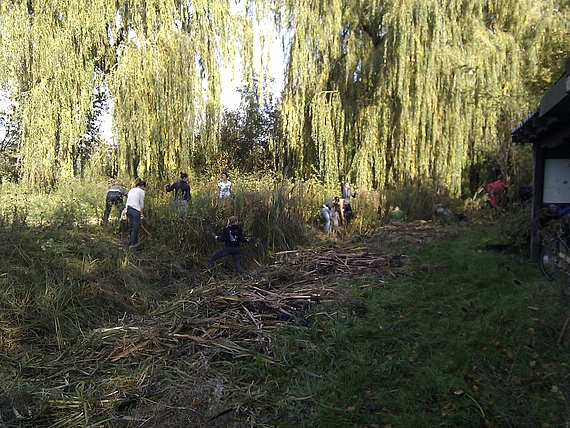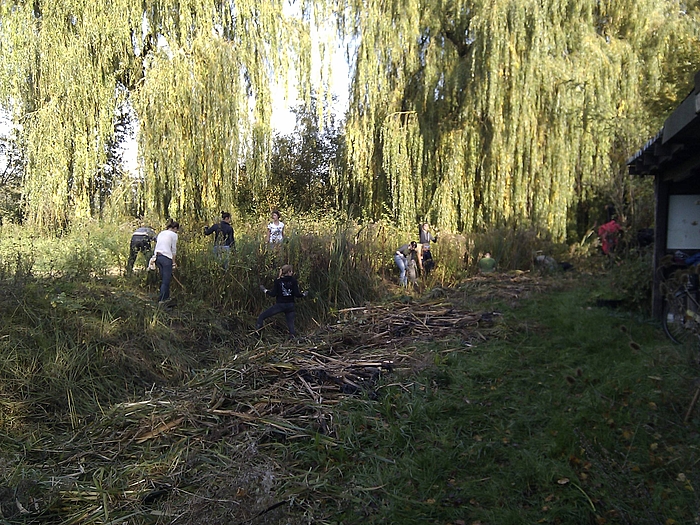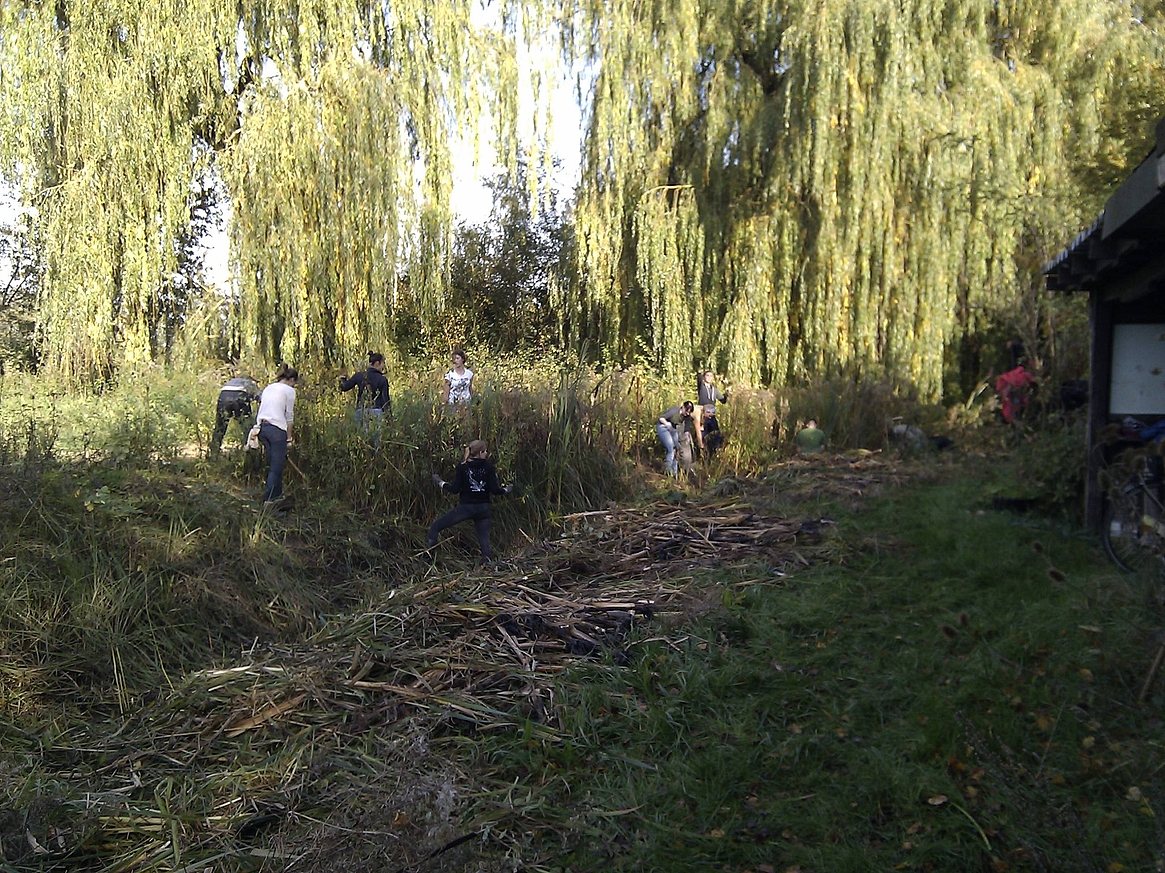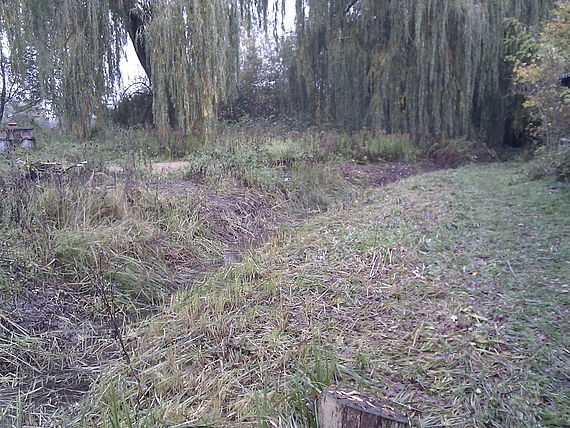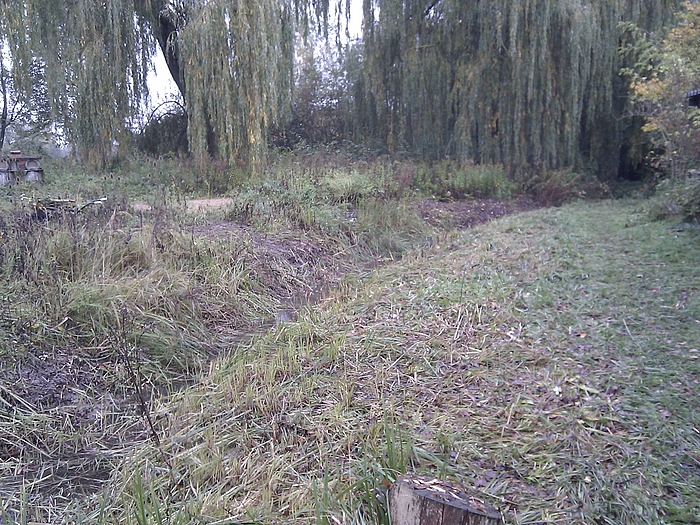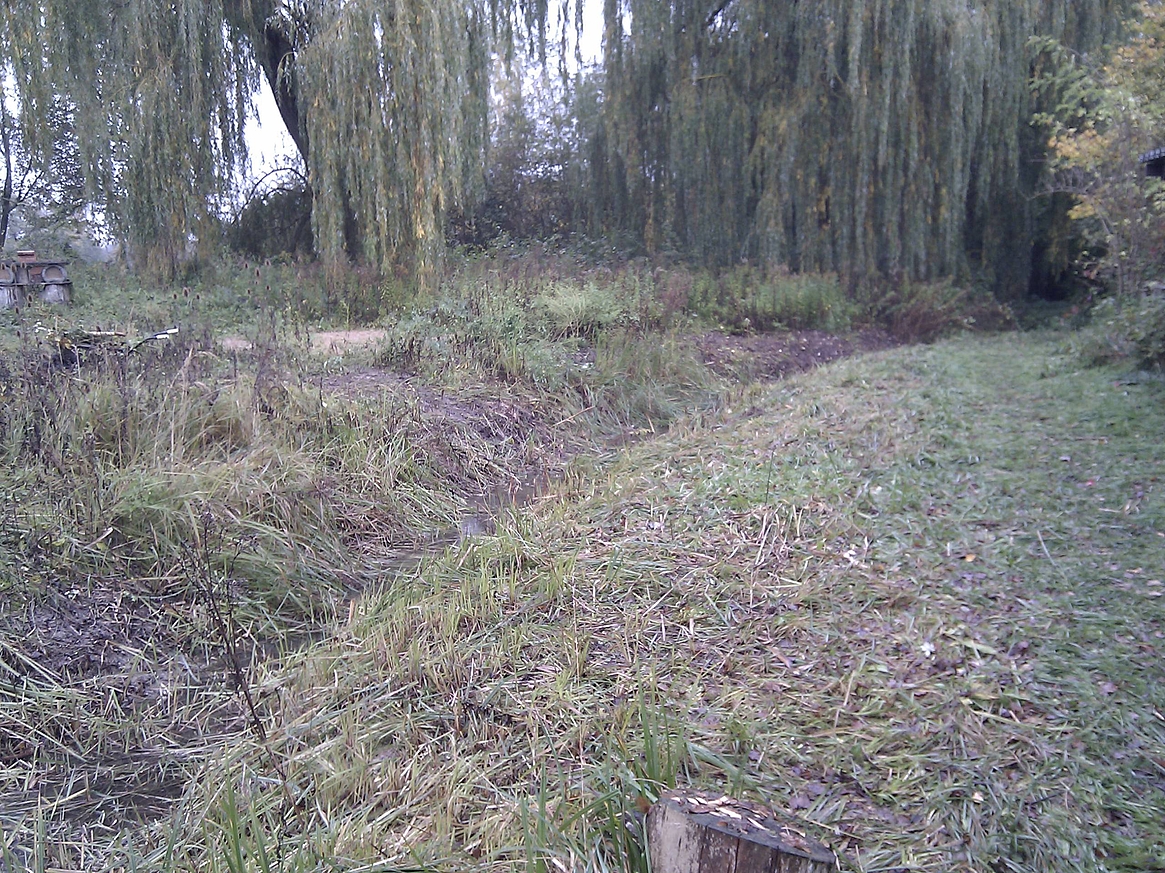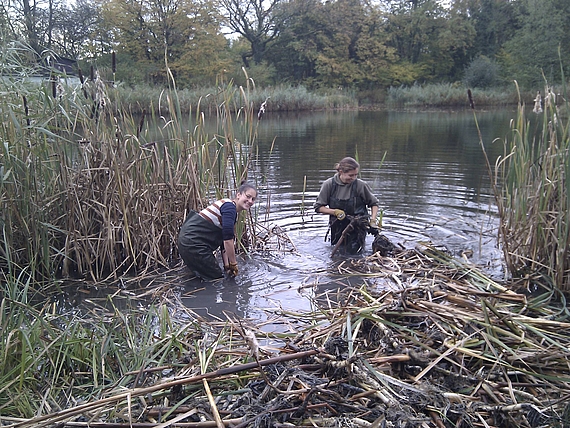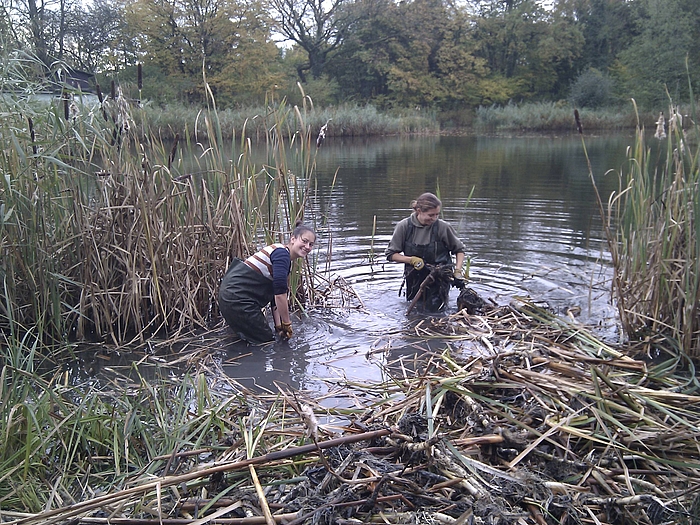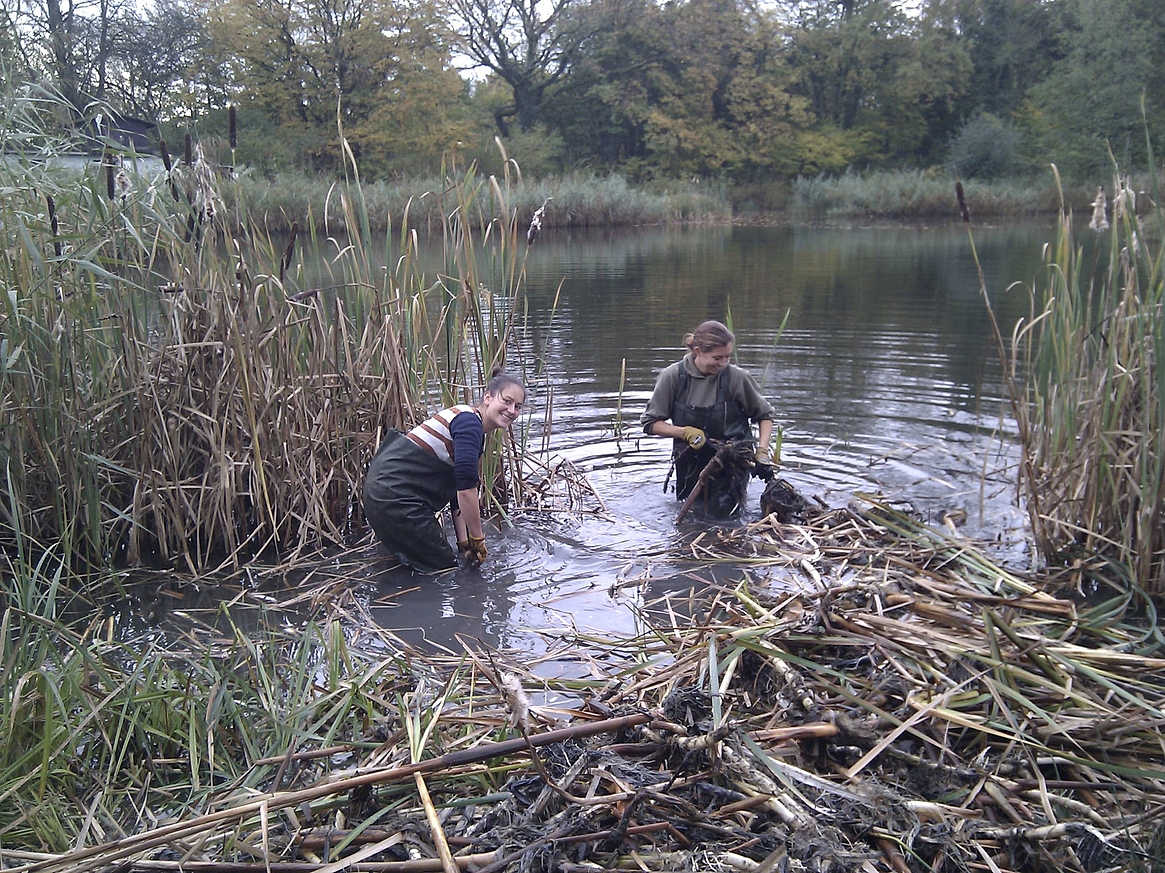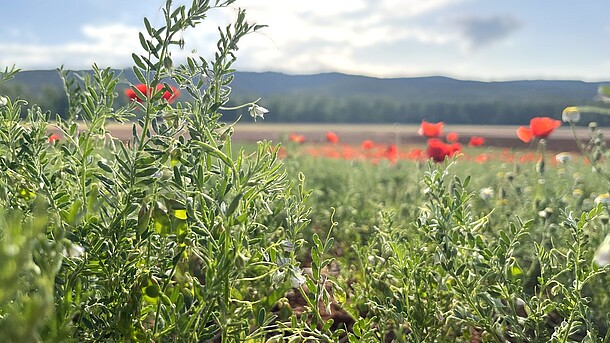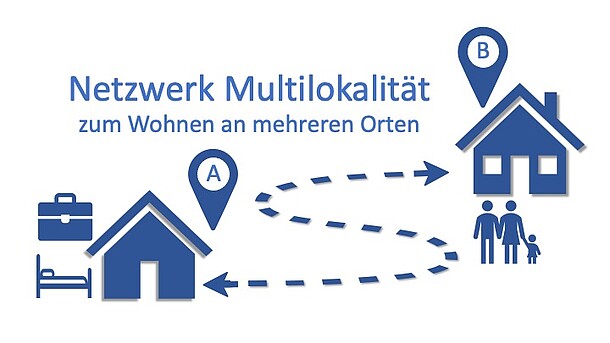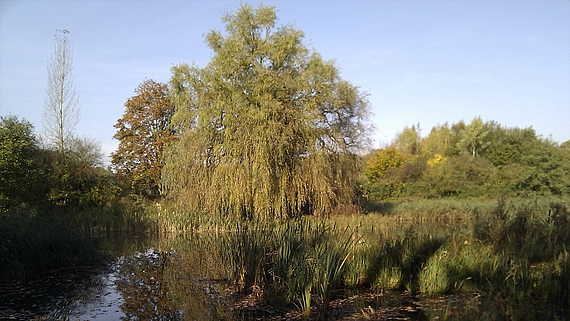
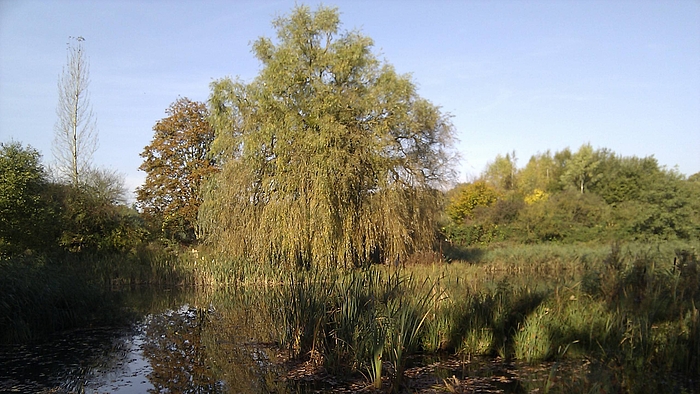
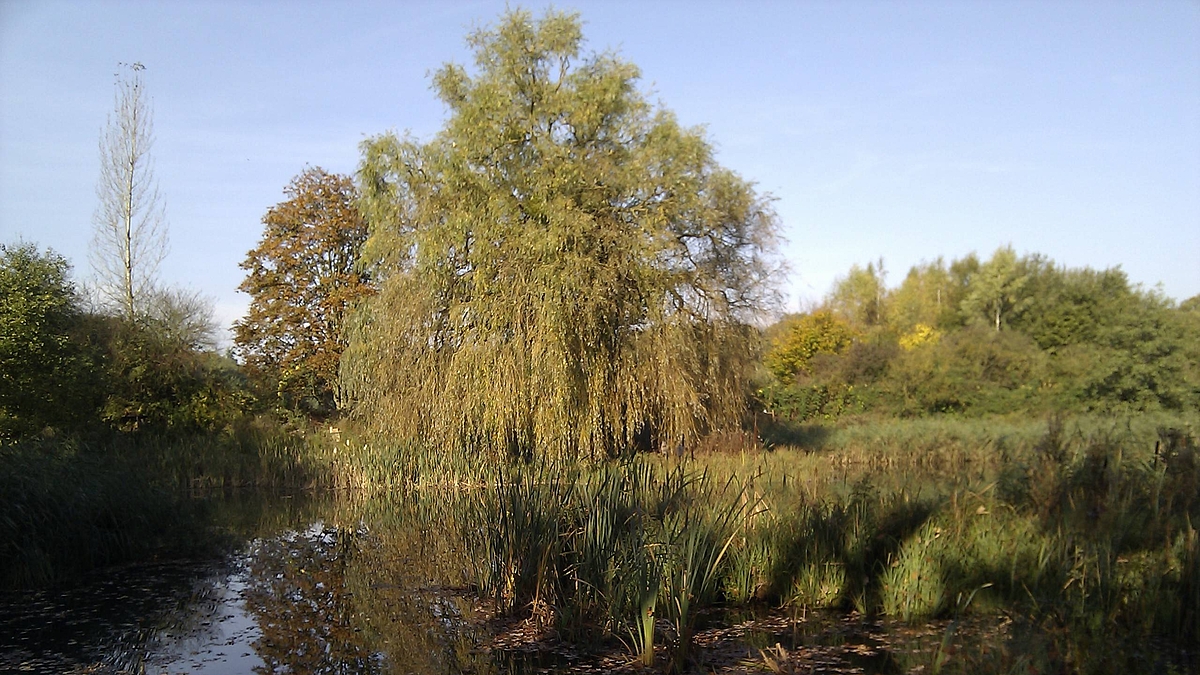
On 19 and 20 October 2017, the 6th Environmental Workcamp was held with 14 Master's students of Environmental Planning. The workcamp regularly takes place during the introductory week of the winter semester. Under the leadership of Dr Stefan Rüter and Lotta Zoch from the IUP, this year the group went to the Badebornteich pond in Hanover's west.
First, the group explored an amphibian guiding system with tunnel built in 2007 at Lenther Chaussee (Photo 1). Gerhard Hermann from BUND's amphibian protection group explained how the guiding system works and presented further measures for amphibian protection, e.g. the creation of new spawning grounds. Afterwards, the tour continued to the bathing pond at the foot of the Benther Berg. The former fish breeding pond was renaturalised in 2004 and redesigned as a biotope for amphibians (photo 2). Subsequently, BUND Hannover Region leased the site for further maintenance and development. Nature conservation officer René Hertwig and Marion Heinemann from BUND explained the special features and development goals at Badebornteich (photo 3). Here, the students gained interesting insights into planned measures to support amphibians and Hymenoptera around the pond.
After the lunch break, it was time for the practical work, as carrying out landscape maintenance work is the focus of the environmental work camps. The sometimes heavy rain could not dampen the good mood and motivation of the students: Under the guidance of the BUND staff, a wide variety of maintenance measures were carried out on the grounds of the Badeborn pond. On the first day, the group concentrated on weeding the course of the Bade - a small watercourse that flows through the Badebornteich. Using digging forks, loppers and scythes, the students cleared the watercourse and the banks of cattails, goldenrod, blackberries and other plant growth (photos 4-6). On the second day, they cut back woody plants and cleared individual woody plants. In addition, they cleared a shore area of the Badeborn pond that had been specially designed for Hymenoptera with sand fillings. This required work both on land and in the water (photos 7-8). The aim is to ensure that the shore area is well exposed to sunlight so that numerous endangered species will be found there again next year.
Report on the Badeborn pond and the environmental work camp on the BUND website (Internetseite des BUND)
